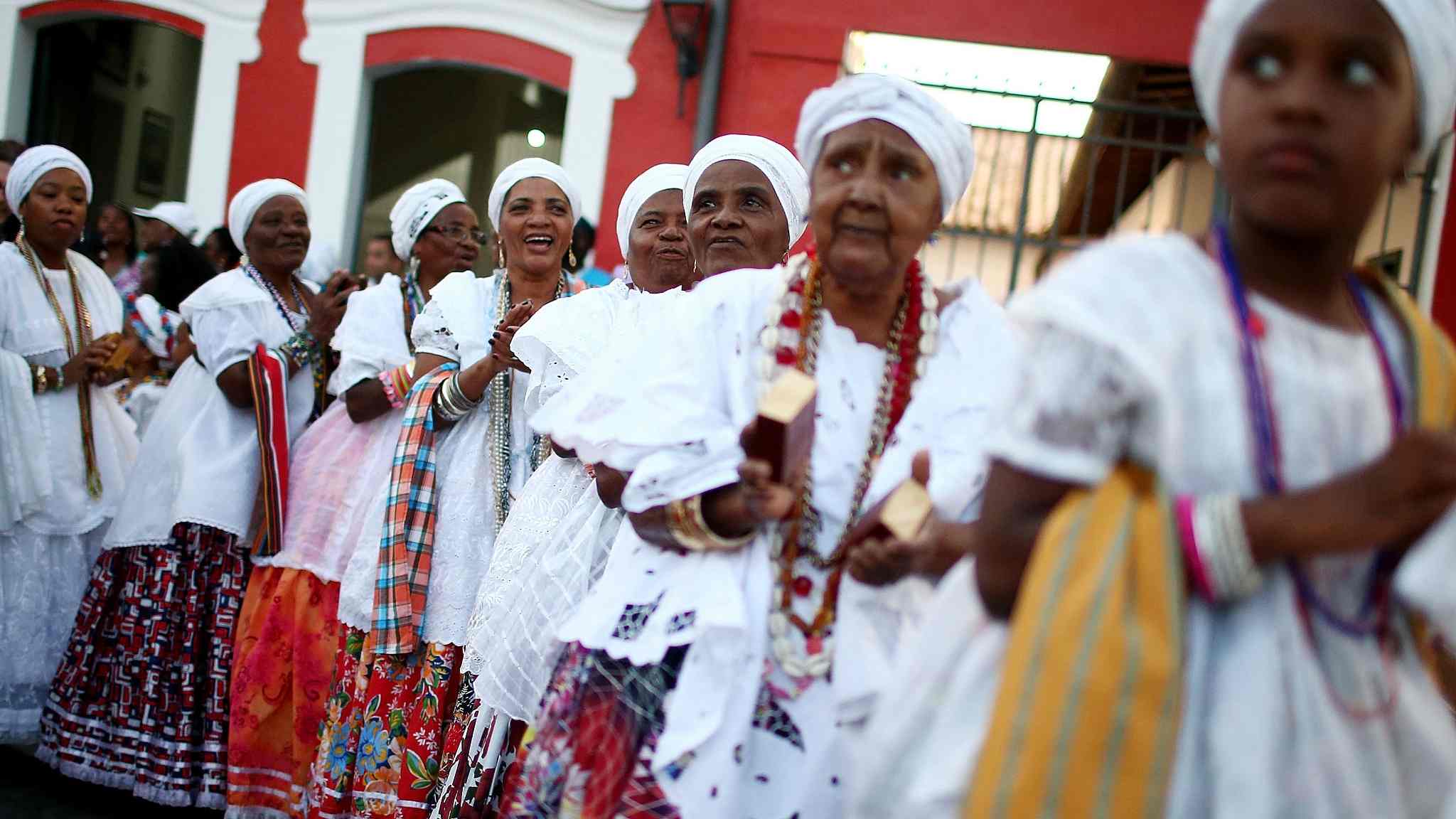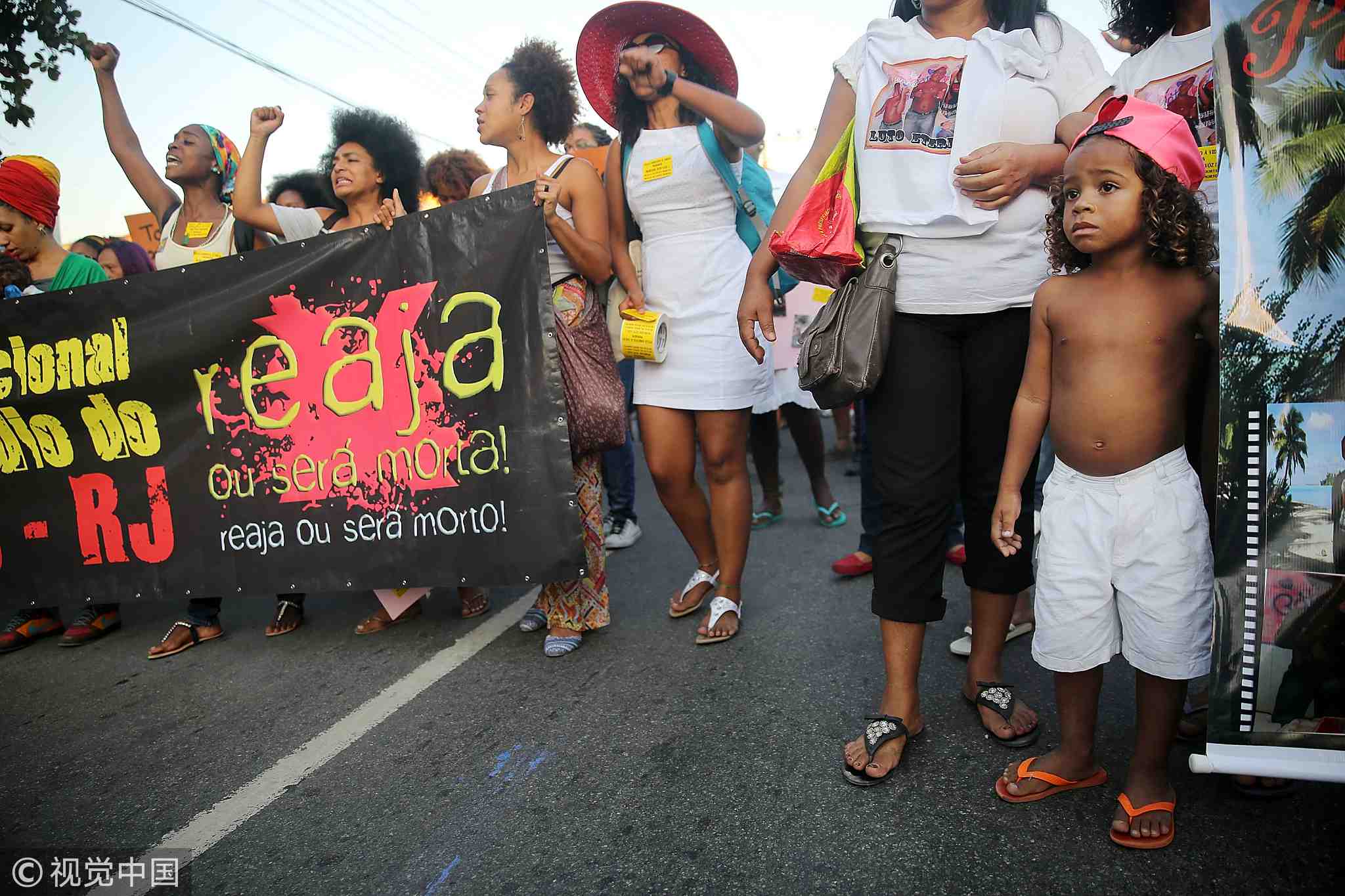
World
14:11, 03-Sep-2018
Latin America's Afro-descendants make gains but hurdles remain: report
Updated
13:48, 06-Sep-2018
By Bertram Niles

Despite recent gains in poverty reduction, Afro-descendants in Latin America continue to experience disproportionate levels of poverty and discrimination, and much more needs to be done to bring about their full social and economic inclusion, says a new report.
Some 133 million Latin Americans, or about a quarter of the population, identify themselves as Afro-descendants, with the majority living in Brazil.
After a long period of neglect, they have benefited from an uptick in their living conditions over the past two decades or so, says the report by the World Bank entitled "Afro-descendants in Latin America: Toward a Framework of Inclusion."
"The growing recognition of Afro-descendants represents a dramatic break from a past that began with one of the darkest chapters of Latin American history: slavery and its egregious legacy of social exclusion," it says.
Still, the picture remains dismal for the millions of Afro-descendants who are disproportionately represented among the poor. They account for a combined 38 percent of the population of Brazil, Colombia, Ecuador, Panama, Peru and Uruguay, but about half of all the people living in extreme poverty. They also have fewer years of education and are more often victims of crime and violence. Despite their growing visibility, they are still vastly underrepresented in decision-making positions, both in the private and public sectors.
Overall, Afro-descendants have higher levels of unemployment in all countries, and among those employed, a larger share of them work in low-skilled occupations. When they find work, they will encounter huge gaps in income levels with non-Afro-descendants

A float taking part in the Blacks and Whites Carnival in Pasto, Colombia on January 6, 2018. It is celebrated in the city every year from January 2 to 6 and is part of UNESCO's Intangible Cultural Heritage of Humanity. /VCG Photo
A float taking part in the Blacks and Whites Carnival in Pasto, Colombia on January 6, 2018. It is celebrated in the city every year from January 2 to 6 and is part of UNESCO's Intangible Cultural Heritage of Humanity. /VCG Photo
In spite of the disparities, the association between race and poverty in the region was ignored or neglected for much of the 20th century, bank vice-presidents Jorge Familiar and Laura Tuck assert in a forward to the report.
The remarkable improvement in the living conditions of many Afro-descendants since then is partly a consequence of the general poverty reduction trend in the region, the report says.
Over 50 percent of Afro-descendant households living on less than 5.5 US dollars a day were lifted out of poverty in Brazil and Uruguay, and more than 20 percent of them in Ecuador and Peru.
One way of sustaining this trend is through education, with the report citing statistics that suggest that completing even primary school can reduce the likelihood of Afro-descendants being poor by between nine and 23 percent, depending on the country. The percentage is even higher for tertiary education though less promising for secondary education because of higher dropout rates.
"These results are highly significant, as they hint at the urgency of investing in racially minded policies of educational inclusion, to break the cycle of chronic poverty afflicting a disproportionate number of Afro-descendant households," the report says.

Brazilians march in a protest against the police shooting of Afro-descendants on August 22, 2014. Brazilian police are reportedly responsible for the deaths of about 2,000 people a year, most of whom are Afro-descendants shot in slums. /VCG Photo
Brazilians march in a protest against the police shooting of Afro-descendants on August 22, 2014. Brazilian police are reportedly responsible for the deaths of about 2,000 people a year, most of whom are Afro-descendants shot in slums. /VCG Photo
The scale of the task to realize the full potential of education in terms of ethnic-racial inclusion is reflected in this one stat: Afro-descendants represent 25 percent of the Latin American population aged 25 years and above, yet they account for only 12 percent of those with a tertiary-level degree. It is the type of gap that can be explained by discrimination across the education systems across the region, according to the report.
The authors offer ideas on how countries in Latin America can go about designing programs to achieve greater inclusion but put forward no specific solutions.
Having adequate statistical data and appropriate diagnostic tools is the first step, the report says. Then the authorities will have to design policies with clear, specific and measurable goals in such areas as educational attainment, employment opportunities and equal wages.
They should also work to change the thought processes that drive the exclusion of Afro-descendants, it says, and strengthen their voice and participation in society as they remain vastly underrepresented in decision-making arenas.
"Addressing the causes of structural discrimination will be key to fighting injustice and creating opportunities for all," said Familiar in a World Bank release that accompanied publication of the report. "Eliminating the conditions that limit the full inclusion of Afro-descendants will make Latin American societies more just, egalitarian and prosperous."
Top Photo: Brazilians take part in a religious ceremony based on traditional African customs on August 17, 2014. /VCG Photo

SITEMAP
Copyright © 2018 CGTN. Beijing ICP prepared NO.16065310-3
Copyright © 2018 CGTN. Beijing ICP prepared NO.16065310-3